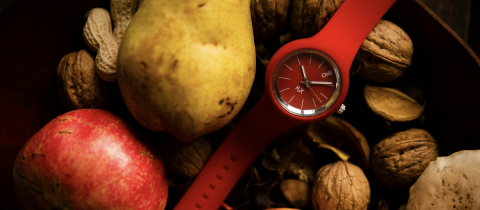I’m fond of apples. Maybe it has to do with some youthful memories of an upset tummy being soothed with a grated apple sprinkled with lemon juice. Or perhaps biting into one rekindles thoughts of the great times we had with my kids going apple picking. Then there is the notion that apple a day is supposed to keep the doctor away. That is in spite of the toxins it contains! No, I’m not talking about traces of pesticide residues, I’m speaking of natural toxins. And the apple has plenty of those! Among the hundreds of natural components, apples contain acetone, formaldehyde, furfural and methanol, each one of which is potentially toxic. But let me refer you to Paracelsus’ classic doctrine, “only the dose makes the poison.” In apples, the dose of those toxins is vanishingly small. The benefits of the fibre, vitamins, anthocyanins, flavonoids and bacteria present outweigh any risk.
Bacteria? Yup! An apple contains roughly 100 million bacterial cells that can find their way into our gut and blend with the hundreds of species of bacteria that make up our microbiome. The apple’s bacteria are mostly the “good” kind that can crowd out disease-causing strains, help digest food, and crank out short-chain fatty acids that play a role in immune function. Organic apples actually have a better bacterial profile, but whether this has any practical significance is questionable. Most of the bacteria are in the apple core and seeds; if we chuck these, as most people do, the potential benefits are lost. That’s why the whole apple should be consumed, core and all! What’s the best way to do that? Bottoms up! Unpeeled, since most of the antioxidants are in the skin.
What about the threat of cyanide in apple seeds? A problem? Nope. While apple seeds do contain amygdalin, a compound that breaks down to release cyanide, the seeds have to be chewed, and a cupful would have to be consumed to cause any harm. A single apple only has about ten seeds. Of course, there are better sources of “probiotics,” the technical name for “good” bacteria, than apples. Yogurt, kefir, kimchi and sauerkraut come to mind.
Apples are usually consumed as a snack, but if weight control is an issue, then eating the fruit fifteen minutes before dining can reduce the calories that will be consumed in the meal. In a study at Pennsylvania University back in 2009, subjects who ate apple slices containing 125 calories (about one and a half apples) and then were served an unlimited pasta lunch, consumed 15% fewer calories. Apple sauce or apple juice, with or without fibre, had a much smaller effect despite having the same calorie count as the whole fruit. Basically, the study suggests that eating fruit at the start of a meal can be a strategy for cutting back on food.
However, there is nothing magical about the apple. Any food that has lots of water and fibre will do the same. Eating a salad before a meal, as long as it is not loaded with high-calorie dressing, will also reduce the appetite. What about subbing just celery for the salad? Isn’t that better since celery has “negative calories?” No, that is a myth. There is no food that requires more calories to be spent on chewing, digesting, and assimilating than it provides. But celery comes close. About 85% of the calories it contains are burned as the body processes it, and since it is high in water and fibre content, it will lead to being satisfied with less food at the next meal. However, chewing on celery is not as attractive as biting into a nice juicy apple. And you can choose from some 7500 varieties! I’ll take a Honey Crisp.
A final point. People who like apples are said to be outspoken, charismatic and enthusiastic. So, how do you like them apples?







